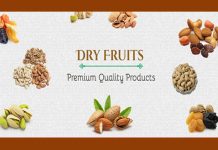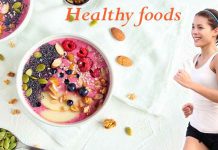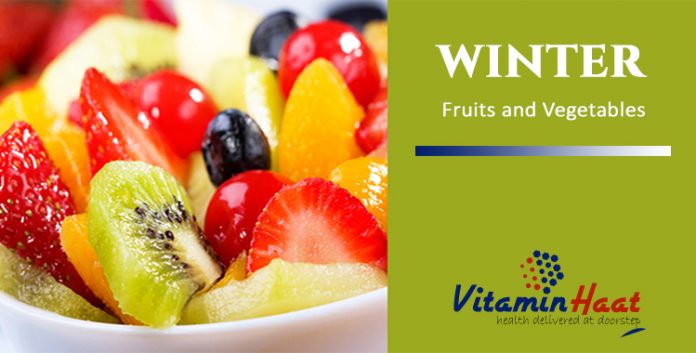We looked at seven winter fruits and vegetables that will help you and your family to keep colds and flu at bay. According to ayurveda, these Winter Fruits have major immune-boosting properties. Winter is arriving and, particularly with the cold and flu time. Winter fruits is important to know what we can do to keep a strong and balanced immune system to stay healthy and evade infections.
Fresh Winter fruits are our greatest sources of vitamin C. It can benefit to strengthen our immune system and keep our body healthy. Great food sources of vitamin C include berries, kiwi, bell peppers, citrus, and dark green vegetables.
One of the most beneficial and effective ways to boost your body’s immunity is through Winter fruits and vegetables juices concentrated cleansing elixirs that deluge your blood cells with nutrition.
You need many nutrients, such as vitamins A, C, D and E, as well as minerals selenium to support your immune method. Concentrate on eating complete foods, for example quality animal protein, whole grains, nuts and seeds, as well as plenty of fresh Winter fruits and vegetables. Superfoods such as bee pollen, reishi mushroom, camu camu, and micro algae can give you an extra boost.
Start your day off fresh and energizing with a juice that combines at least 2 of the following Winter Fruits and Vegetables. While a Winter Fruits juice is healthy on its own, its special effects are made ever the more powerful with the help of vegetables and greens.Combining fruits with other elements also dilutes the sugar content of the juice so that it doesn’t rise your blood sugar levels too drastically. Entertain your palate with variety!
Winter Fruits and Vegetables to Juice for a Fit Immune System
Strawberries
This popular spring berry is splendid in both vitamins A and C, says Marber, and the seeds also contain minerals that support immune action.
Oranges and Grapefruits
In Winter Fruits such as Oranges and grapefruits are a immense basis of vitamin C. vitamin C deficiency can result in a reduced resistance against certain pathogens.
Tomatoes
Winter fruits like Tomatoes require complete sun and at least eight hours of light to produce any fruit. Temperatures should be in the range of 65 F. (18 C.) or more indoors.
Celery Leaves
Celery is splendid in vitamins and minerals, but its true value is in the leaves! The leaves are a great source of vitamins A and E. Vitamin E is a strong antioxidant which can keep health, particularly among elders.
Pumpkin
Pumpkin is splendid in vitamin A which you shouldn’t remove while juicing, are filled with zinc, vitamin E etc. Zinc increases the production of immunity cells warrior T-cells, white blood cells etc.
Kiwi
Many people have heard or read at sometime that vitamin C is helpful for supporting our immune health and beneficial when we have a cold. But did you see that Kiwi fruit is one of the most extremely concentrated sources of vitamin C? And that’s why it’s made it on this list! Kiwi also contains Vitamin E and potassium.
Banana
Bananas are reasonable again they are a must have snack during winter. Absolutely bursting with nutrients bananas contain magnesium, chromium, folic acid, potassium and vitamin B6 to benefit care healthy winter bodies.
Dark Leafy Greens
Dark leafy greens, such as kale, spinach, and parsley, contain the gamut of immune-boosting nutrients. Amid them is vitamin B6, which plays an significant part in optimal immune health.
Ginger
Ginger has antibacterial and antiviral properties. These qualities help it to fend off respiratory viruses and the usual cold. Ginger also reduces mucous production and works to clear up congestion.
Submit your review | |
Truly appreciate you for providing one of the life lessons on good health.
























